Annual Statement 2024/25 – East Sussex MSK Community Partnership (ESMSK)
In accordance with the Modern Slavery Act 2015, our statement below outlines the steps we have taken in the financial year 2023/24 to ensure that Modern Slavery is not taking place in any part of our organisation or supply chains. ESMSK’s position on modern slavery is to:
- Comply with legislative regulatory requirements
- Make suppliers and service providers aware of their responsibilities under the legislation
- Develop an awareness of human trafficking and modern slavery within our workforce
- Consider human trafficking and modern slavery issues when making procurement decisions
ESMSK’s organisation and structure
ESMSK is the local organisation that manages the care and treatment of patients with bone, joint and muscle conditions (musculoskeletal or MSK for short) in partnership with the NHS. Our service also provides care and support for Rheumatology patients and those with chronic pain. The service was commissioned in 2015 by the Clinical Commissioning Groups (CCGs) that manage health services in the majority of East Sussex (High Weald, Lewes and Havens CCG and Eastbourne, Hailsham and Seaford CCG). Their aim was to make MSK care more efficient, cost effective and more accessible for patients in this area. MSK covers a huge range of conditions, many of which are difficult to diagnose. By bringing different specialisms together we can ensure that patients receive prompt and appropriate care that focuses on their individual needs and situations. We bring together a network of local clinicians and support organisations to provide seamless, all-round care for our patients. We commission services utilising local health services to provide wider choice to our patients. Our clinicians include surgeons, physicians, physiotherapists and Advanced Practitioners (AP). APs are physiotherapists who are expert in diagnostics and have extended abilities such as being able to order diagnostic investigations. APs usually specialise in a particular area of the body, for example, spine, shoulder, hips, knees, foot and ankle. Appointments and administration are managed by our team of Patient Care Advisors who are responsible for keeping patients informed and supported while in our care. Patients are referred to the service by their GP or other health practitioner and are assessed by our clinical team to determine the best care pathway for their individual needs and situation. The first port of call for many patients is to see an AP who specialises in the area of their complaint. The AP diagnoses and in collaboration with the patient, recommends treatment or follow up investigations.
ESMSK’s policies on modern slavery
ESMSK is committed to ensuring there is no Modern Slavery or Human Trafficking in any part of our business and, in so far as possible, requiring our suppliers to hold a corresponding ethos. To identify and mitigate the risks of modern slavery and human trafficking in our own business ESMSK has established robust recruitment procedures as detailed in its Recruitment Policy. The policy supports compliance with national NHS employment checks and standards. ESMSK has a number of controls in place to ensure compliance with employment legislation:
- We confirm the identities of all new employees and their right to work in the United Kingdom, and pay all our employees above the National Living Wage;
- Our Whistleblowing Policy encourages staff to disclose issues and concerns that are within the public interest. Line managers are available to listen and talk to staff about any concerns;
- The Bribery and Corruption Policy includes staff’s personal responsibility to declare anything that may influence decisions, be that through the procurement or recruitment process. It references the Bribery Act 2010 with regard to indirect pressure to recruit or secure jobs and suppliers;
- Our adult and children’s safeguarding policies play an integral part in ensuring that any current and potential risks are raised. Our patients and/or staff may show signs of abuse through modern slavery and we may be the first to notice these signs;
Safeguarding
All new starters are required to undertake safeguarding training at corporate induction which includes the escalation and reporting of safeguarding concerns including modern slavery. SMSKPE has guidelines for managing allegations against staff including safeguarding concerns encompassing modern slavery and works in partnership with statutory agencies to investigate any allegations of modern slavery made.
Working with suppliers
When procuring goods and services, we additionally apply NHS Terms and Conditions (for non-clinical procurement) and the NHS Standard Contract (for clinical procurement). Both require suppliers to comply with relevant legislation.
Due diligence
ESMSK undertakes due diligence when considering taking on new suppliers, and regularly reviews existing suppliers. We identify and mitigate the risks of modern slavery and human trafficking within our business and our supply chain.
Training and Awareness
- Advice and training about modern slavery and human trafficking is available to staff through our mandatory safeguarding children and adults training programmes, our policies and procedures and our incident reporting process.
- A Modern Slavery awareness training session will be delivered to the team. The material from this session will be circulated to the wider team following the training.
- We are looking at ways to continuously increase awareness within our organisation, and to ensure a high level of understanding of the risks involved with modern slavery and human trafficking in our supply chains and in our business.
Progress Indicators
The effectiveness of these steps to ensure that Modern slavery and/or human trafficking is not taking place within our organisation or supply chain can be measured by the following indicators.
- That there are no reports from our staff via the organisation’s reporting procedures to indicate modern slavery practices.
- There are no reports from the public to identify modern slavery practices
- There are no reports from law enforcement agencies which identify modern slavery practices
